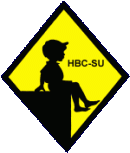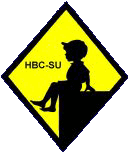
Figure 1.-- |

|
A HBC reader has provided us a glossary of important terms concerning the modern British education ststem. These terms relate primarily to the modern British education system in England and Wales, and to a large part Ulster. Scotand is somewhat different.
Baseline assessment - The statutory assessment of children on entry to primary school, at age four or five. Baseline assessment takes place within the first seven weeks of a pupil entering primary education and became statutory in England in September 1998. It became statutory in Wales from September 1999. Baseline assessment is also compulsory in Northern Ireland, and must only take place before the end of the pupil's first year in primary education.
Chief Education Officer (CEO) - The senior appointed official with overall administrative responsibility for education in a LEA in England or Wales. Required in every LEA and sometimes known as the Director of Education, the Chief Education Officer is responsible to the Education Committee of the local authority, on which elected councillors form the majority.
Cross-curricular theme - Strands of provision that run through the National Curriculum in England and Wales and may also extend into religious education and provision outside the basic curriculum. These include, at appropriate stages, such aspects as careers education, health education, political and international understanding. Cross-curricular themes are also a feature of the Northern Ireland Curriculum.
Education and Library Board - The regional bodies in Northern Ireland which are responsible for the local administration of primary and secondary education (cf. LEAs in England and Wales).
Education welfare officer - Also sometimes known as 'social workers in education', education welfare officers are employed by the local education authority to monitor school attendance and combat persistent pupil absence.
Key stage - The periods in each pupil's education to which the elements of the National Curriculum apply. There are four key stages, normally related to the age of the majority of the pupils in a teaching group. In England and Wales these are: beginning of compulsory education (age 5) to 7, 7-11, 11-14 and 14 to the end of compulsory education at 16. In Northern Ireland they are: the beginning of compulsory education (age 4) to 8, 8-11, 11-14 and 14 to the end of compulsory education at 16.
Local education authority (LEA) - Local education authorities are locally elected county, metropolitan district or borough councils in England and Wales, which have a statutory duty for the provision and organisation of public education services in their area.
Middle School - Schools catering for children in compulsory education from the ages of 8-12 or 9-13 years. Legally, such schools are deemed primary schools when most of the pupils are under the age of 11 and secondary when the majority of pupils are over 11.
National Curriculum - Requirements for the curriculum for all pupils of compulsory school age (5-16) in England and Wales were introduced under the Education Reform Act 1988, and are now governed by the Education Act 1996. Pupils are required to follow a basic curriculum comprising the National Curriculum subjects and religious education. National Curriculum subjects include: English, Welsh (in Wales), mathematics, science, design and technology, information technology, history, geography, art, music, physical education and a modern foreign language from key stage 3.
Pastoral care - The guidance given to pupils by school staff relating to their academic, personal and social development, attendance and behaviour.
Transition - Commonly used to refer to the change from secondary school to post-secondary programs, work, and independent living typical of young adults. Also used to describe other periods of major change such as from early childhood to school or from more specialised to mainstreamed settings.
Special educational needs - Term used to describe the requirements of children with difficulties in one of the following areas: learning, behaviour or emotional, social or physical development, which either affect their educational progress or require provision other than that normally made. In England and Wales, if a child is considered to need additional provision to that which is made generally available, the local education authority is obliged to consider the issue of a formal statement of the child's identified needs with proposals to meet them. The child is described as "statemented".
Related Chronolgy Pages in the Boys' Historical Web Site
[Main Chronology Page]
[The 1880s]
[The 1910s]
[The 1920s]
[The 1930s]
[The 1940s]
[The 1950s]
[The 1960s]
[The 1970s]
[The 1980s]
[The 1990s]
[The 2000s]
Related Style Pages in the Boys' Historical Web Site
[Main school uniform page]
[Main country page]
[Long pants suits]
[Short pants suits]
[Socks]
[Eton suits]
[Jacket and trousers]
[Blazer
[School sandals]
Navigate the Boys' Historical Clothing Web Page
[Introduction]
[Activities]
[Biographies]
[Clothing styles]
[Countries]
[Bibliographies]
[Contributions]
[FAQs]
[Glossary]
[Satellite sites]
[Tools]
[Boys' Clothing Home]
